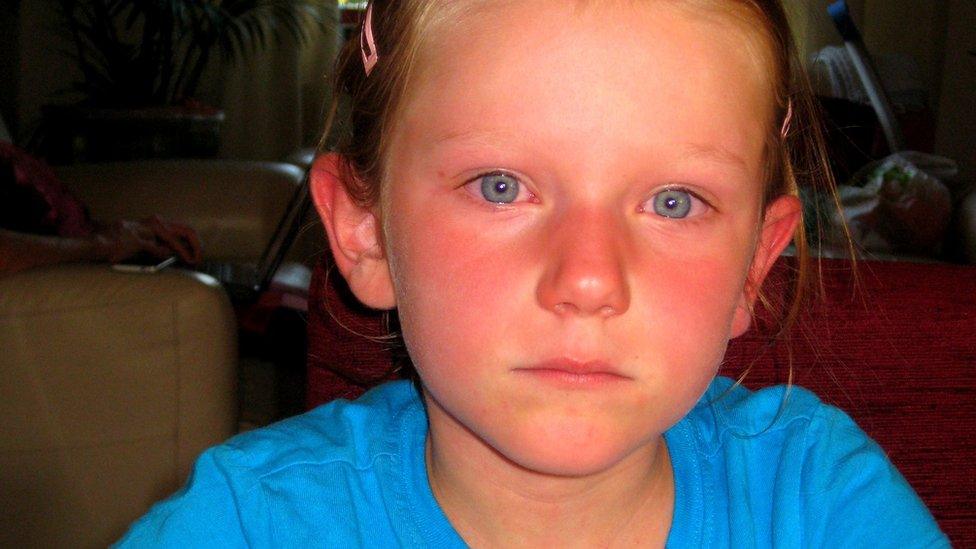National eczema week: 'I wanted to rip my skin off'
- Published

"There were days where I would have a complete meltdown and start clawing at it. I wanted to rip my skin off."
Anna Byard-Golds has had eczema all her life.
"I was aware at the age of four or five. I noticed my hands looked different and I could feel different to other children," she tells Newsbeat.
A survey by the National Eczema Society found 89% of adults with eczema feel it significantly reduces their quality of life.
A quarter of children with eczema have low self-esteem, according to parents who were surveyed.
"It's like rhino skin - cracked, rough and not pretty to look at," says Anna, who's 15.
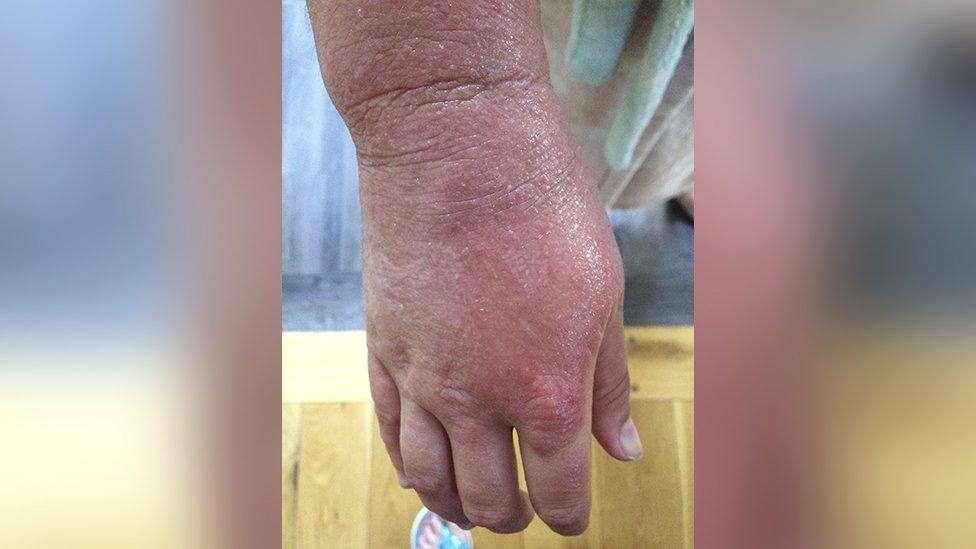
"Like red gloves"
Over a third of sufferers have had their education affected by the condition, according to the survey., external
Anna's just gone back to school. But there have been many days over the years when she's just not wanted to go in.
"There's days I'd come home early because of it being so painful.
"It's hard to move, hard to write so I couldn't actually do the work or focus properly."
Her eczema would come up on her face in the morning, and it made her feel self-conscious.
"I didn't want people to see it. It was very embarrassing."
Growing up, Anna was bullied because of her eczema.
"Not only did I realise I was different, but I had other people telling me that I was as well."
She would wear baggy clothes to try to cover up because she didn't want anyone to see her eczema.
"And it really impacted on me because you don't feel normal."
One of the challenges the National Eczema Society survey highlighted was the social isolation having eczema could cause.
That was the case for Anna - she would still see her friends, but only indoors.
"It would usually have to be at my house or theirs, because going outside was just too embarrassing.
"Or moving around some days would be too painful."
It means having to call off plans, "which makes you feel annoying to others," she says.
"You feel like a burden sometimes."
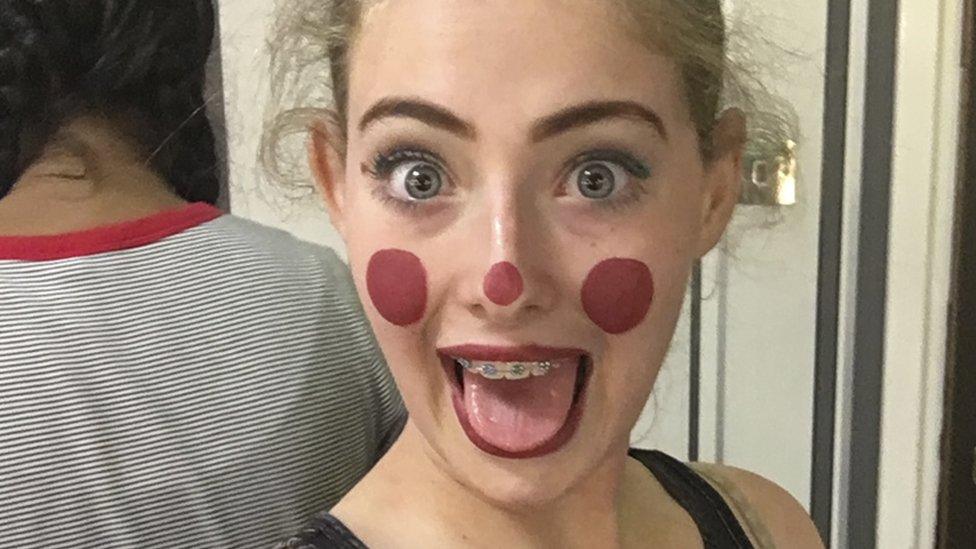
"When I was in character, I knew that I couldn't be judged"
Anna's coping strategies include putting on cream, listening to music and watching acting videos - her biggest passion is drama.
"When I was just me, I felt that I was being judged because of my skin, but when I was in character, I knew that I couldn't be judged, as I was someone else."
Part of the process is trying to build up confidence by "having the right mental attitude".
"It's taken me a while to realise that unless you have the right mindset, you really can't achieve what you want," she says.
She says it's important to let out your emotions.
"If you need to cry, then it's important to do it, and you have to talk to people about how you're feeling.
"There's days when you think, 'Why do I have to go through this?' It was on those days where the tears would set in."
Anna's switched to a new treatment which means she's in a better place now.
Despite the improvement of her hands from "looking like red gloves", it doesn't mean she's found a cure.
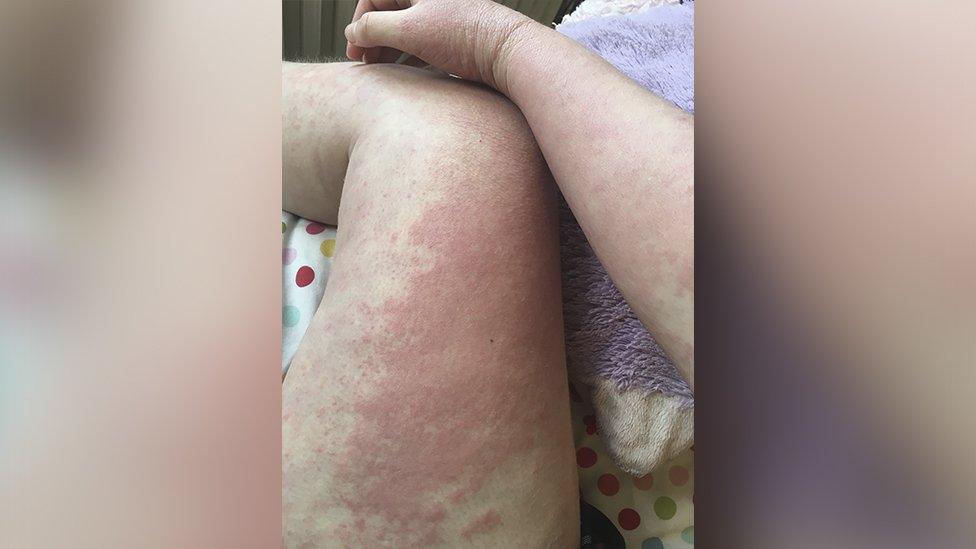
'It's not about curing it'
The National Eczema Society surveyed 530 adults with eczema and 524 parents of children (up to 16) for the start of national eczema week.
Nearly three quarters (74%) of adults said having eczema negatively affected their mental health.
Just over a third (35%) of parents said eczema prevented their children's school attendance.
And 37% of parents said they thought eczema affected their child's performance when they were at school.
According to clinical nurse specialist in dermatology Julie Van Onselen, "it's not a case of curing the eczema, it's about getting it under control".
Julie adds: "Even with a treatment that works for you, you still have eczema and need to care for your skin accordingly".
For Anna, the cracks in her skin are still "very much there, with recurring flare ups, which remain quite severe on my face and wrists."
But she's in a happier place.
"I can now look in the mirror without thinking: 'I don't want to see you.'"


Follow Newsbeat on Instagram, external, Facebook, external, Twitter, external and YouTube, external.
Listen to Newsbeat live at 12:45 and 17:45 weekdays - or listen back here.
- Published10 January 2020
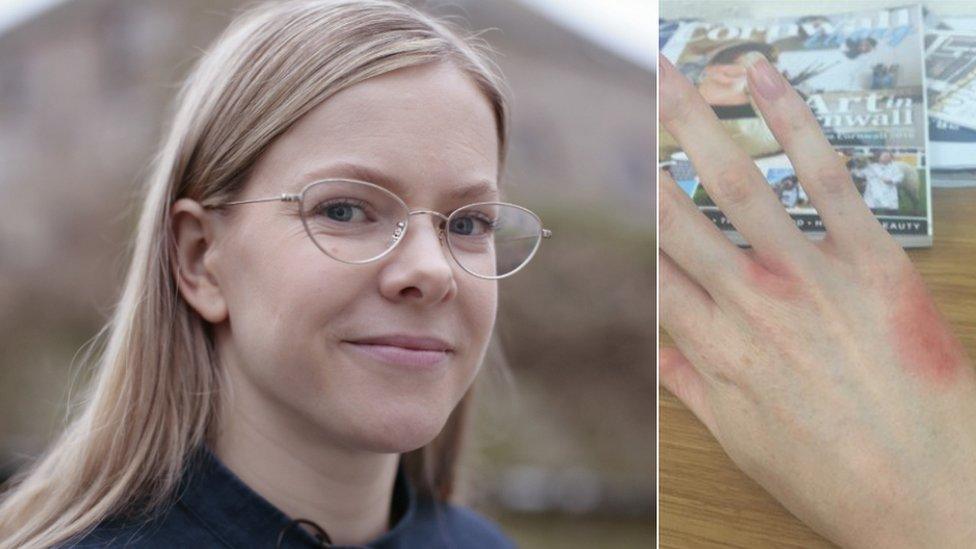
- Published18 January 2020

- Published3 May 2018
